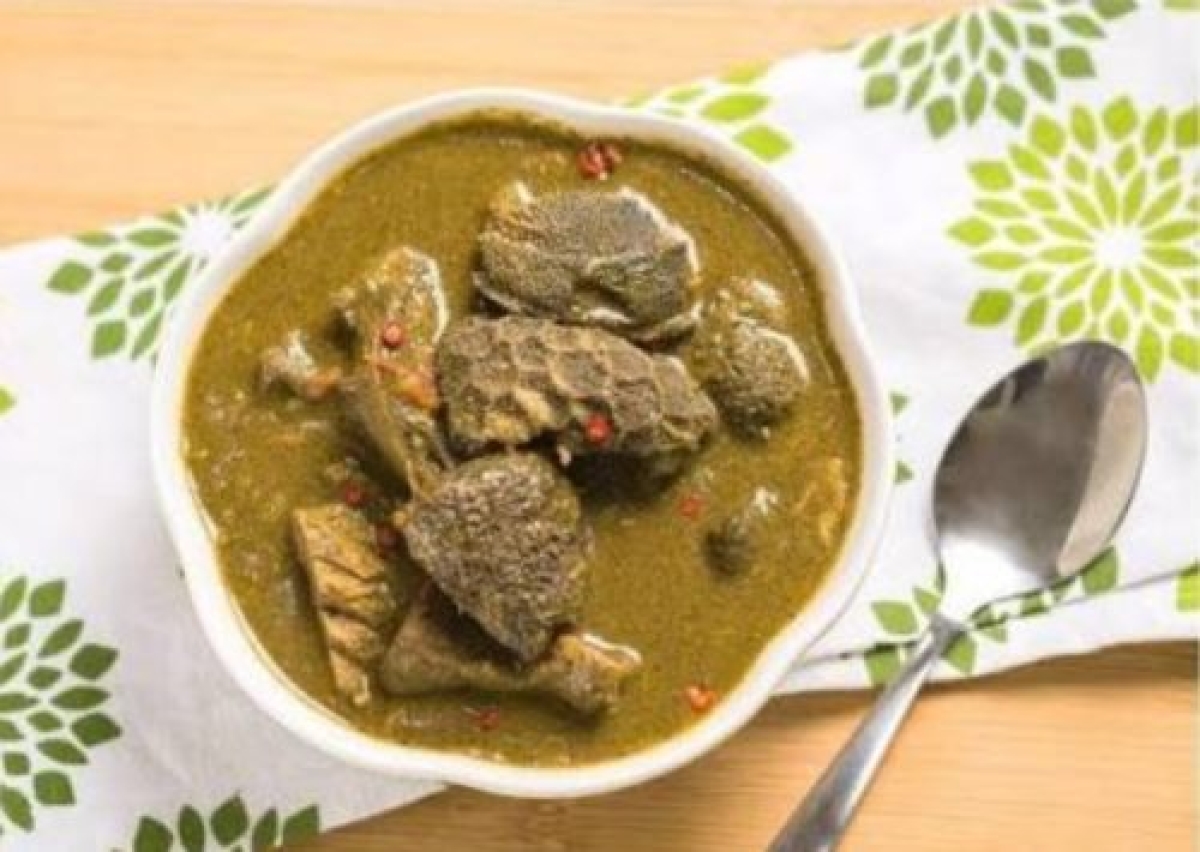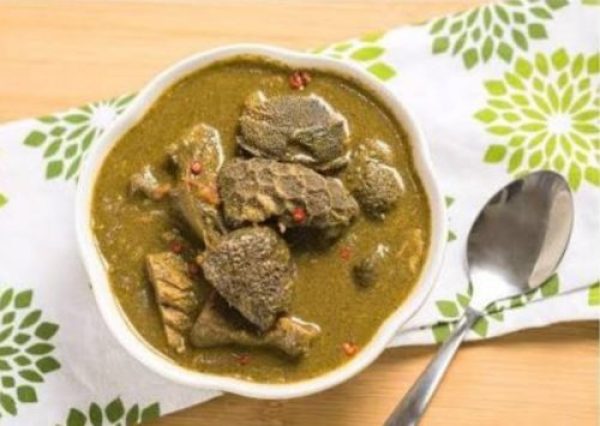Traditional foods are simple, naturally grown foods that have been eaten for centuries; they are passed on from generation to generation. They constitute an important part of the culture, history, identity, heritage and local economy of a region or country. Traditional foods are nutritious and most of them are free from additives. They are key elements for the dietary patterns of each ethnic group.
Jigawa State is in the northwestern part of Nigeria between latitudes 11.00°N to 13.00°N and longitudes 8.00°E to 10.15°E. It was created out of the old Kano State in August 1991. Jigawa has a total population of 4,348,649 inhabitants. About 80 per cent of the population is found in the rural areas. The people of the state are predominately farmers and Muslims.
On our food history segment today is Miyan Kuka. This traditional soup is not just popular in Jigawa State but in the entire northern region. Miyan kuka means baobab leaf soup. It is made using dried baobab leaves. Baobab tree, also called the tree of life, is prolific in northern Nigeria; this perhaps explains the popularity of this soup in the region.
Miyan kuka is also known as luru soup. In making the soup, the baobab leaves are usually sun dried and then ground to powder consistency. This kuka leaf powder then serves as a thickener for the soup. Even though miyan kuka has a greenish look, it is believed to be a relative of the ogbono soup. The quantity of kuka powder you add to your soup will depend on how thick or watery you want your soup to be. However, it must be noted that too much kuka powder makes the soup bitter.
Other ingredients for making this soup are locust bean, onions, ginger, fresh pepper and seasoning cubes. It can be prepared with a variety of meat and fish. Miyan kuka can be served with tuwo shinkafa or any swallow of your choice. This soup is good for postpartum mothers; it is allegedly rich in protein, folic acid and vitamin B.
References
Fatima Ibrahim Baiwa, Abdulhadi Yakubu and Garba UbaKanya, “Nutritional Food Composition Analysis of Some Traditional Foods in Jigawa, Nigeria,” International Journal of Science and Research, Vol. 7, Issue 11, 2018.
The Pretend Chef
Featured image source: Happenings


